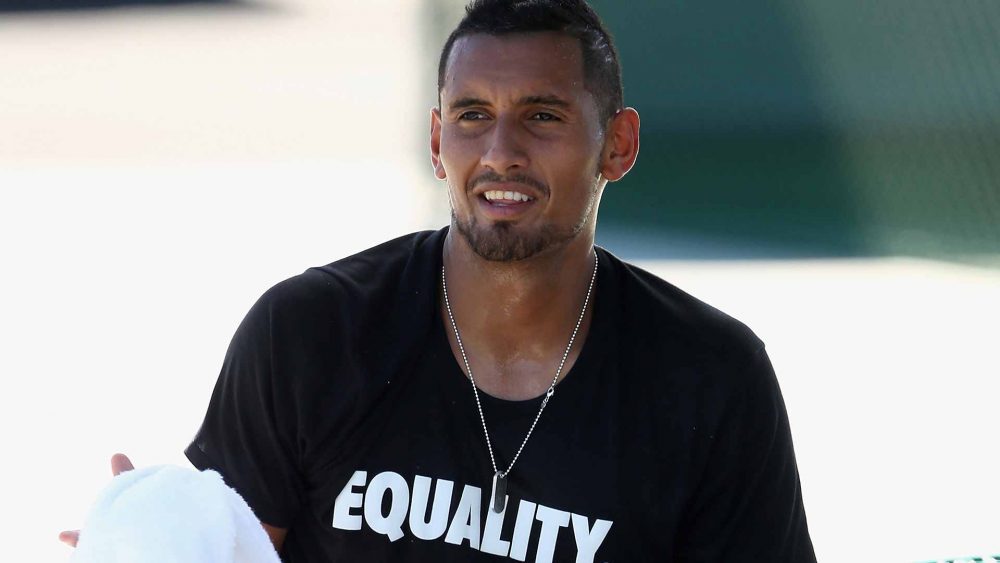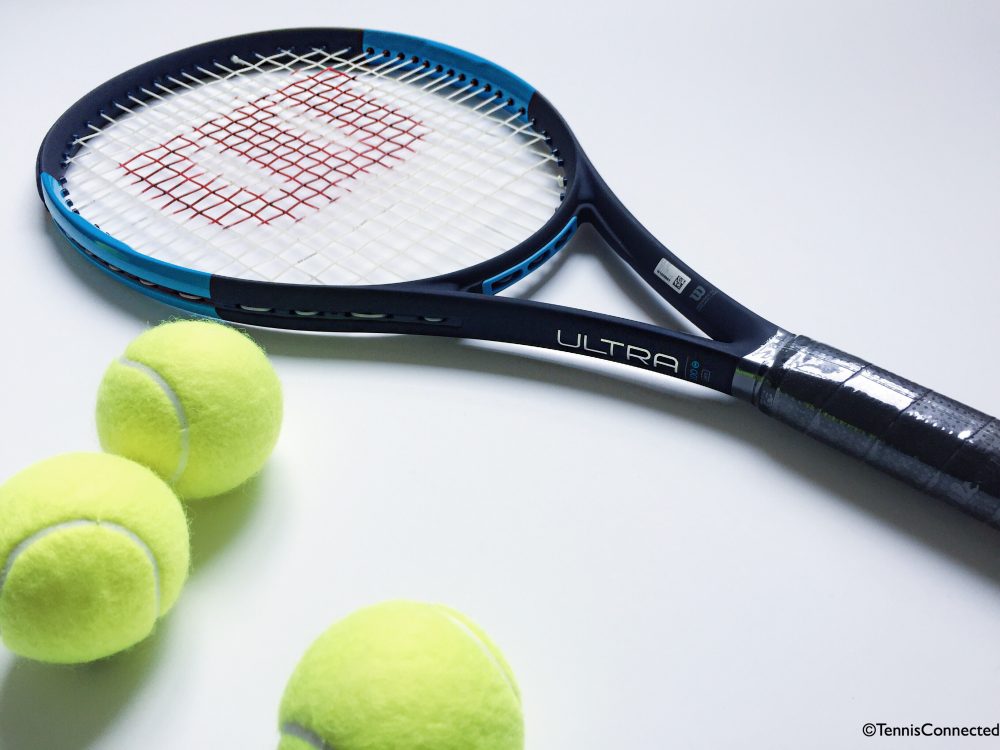Welcome to Tennis Elbow, the column that looks back on the week that was in the world of tennis. This week, Charles Blouin-Gascon explains why he loves Nick Kyrgios.
We’re not sure if you saw but resident-bad-boy-and-quite-talented-at-tennis Nick Kyrgios got a nice little feature in The New Yorker this month.
You can read it in its entirety if you click the link above. Unless you’ve already read 10 stories on their site this month, because The New Yorker has a paywall, etc. But if you don’t, then by all means go and read it. We’ll wait.
So anyway! Petulant Kyrgios was in the foremost intellectual publication of all just a few weeks ago. Here are some of our favourite highlights.
The first thing we notice is the title. Nick Kyrgios, the reluctant rising star of tennis. Reluctant, you say? On a tennis court, the Australian will alternate between moments of pure brilliance and others where he just doesn’t seem to give a flying fuck; he’ll clarify that he’s «definitely» playing at the US Open, as if that needs clarifying (he’s injured, we know but still), and he’ll also tweet the following.
Working hard for what matters. #puttingthingsright ? pic.twitter.com/ObkYiwV8TU
— Nicholas Kyrgios (@NickKyrgios) July 9, 2017
The next highlight occurs when Kyrgios meets writer Louisa Thomas a little after losing a second-round match he had well in control. Thomas offers a “Sorry” for the loss, but Kyrgios brushes it off. “It’s all right. It’s not a big deal,” he says.
He’s right of course. For a 22-year-old who’s won over $4.5 million in career prize money and with a career-high ranking of No. 13 who’s sitting currently at No. 20, this loss against a player named Nicolas Kicker at the Open Parc Auvergne-Rhône-Alpes Lyon doesn’t really register as anything but what it is: just another loss, his ninth of the 2017 season.
Kyrgios makes a living playing tennis and, regardless of what he may think of the sport compared to basketball, knows he’s fortunate. Younger, he may have picked tennis over basketball in order to ease the considerable strain on his family’s finances but he still has a good enough life. He’s not changing the world, he’s just playing tennis, and he knows it.
But you can’t say that, of course. Tennis is a sport that bathes in tradition, decorum and procedure at every turn; you can’t be so casual about tennis, the Tennis Gods demand.
For some, that’s what’s been so frustrating of Kyrgios’s so far in his career. He’s so talented and gifted and has already beaten Roger Federer, Rafael Nadal and Novak Djokovic, and yet… and yet he doesn’t seem to care all that much? Yep, and it’s his prerogative. He’s as free as you and I to try or not try as he pleases at his workplace. “It’s just a game. It’s just a sport,” he tells Thomas. “It’s such a small part of my life.”
Kyrgios himself has a pretty mature outlook on life and his career too, and that’s another highlight from the story. Brad Gilbert tells the writer that maybe all Kyrgios needs is “the total package around him”, meaning: coaching, training, practices, etc.—but the 22-year-old knows what would make the most difference.
“People tell me I need to change, but it has to come from me,” he says there and in just 14 words displays an honesty about his life that plenty of us are lacking. Playing and winning tennis matches is plenty fun, sure, but in order to do so the road is pretty gruelling. Plus if you’re lucky enough that you win more often than you lose, then all it really means is you get more traveling and more time on the road. If you’re someone who gets homesick like Kyrgios, then how lucky are you really?
That Kyrgios wasn’t always the tall and lean machine he currently is, possessing seemingly close to the perfect physique to play tennis, is also a highlight in the story. If Kyrgios is well-versed in the Hot Shot department, it’s by design as he grew up “overweight and asthmatic.” He’s had to learn to play his way, and that’s the way he intends to play, always with great and gutsy gusto always. Don’t tame him, because he doesn’t want you to.
There’s something to be said for someone who is always unapologetically himself. For better, like when hit 70 winners in beating Nadal at Wimbledon in 2014, or worse, like when he told Stanislas Wawrinka that Thanasi Kokkinakis had slept with his girlfriend, Kyrgios is always himself. And he plays doubles tennis too, because it makes him happy and reminds him the sport “can be fun” so why shouldn’t he?
Thomas mentions that Andy Murray has become Kyrgios’s mentor, but his influence on the Australian only goes so far: the 22-year-old is far less methodical and cerebral about life and tennis than Murray is. He’s younger too, which helps explains why.
The story in The New Yorker ends with perhaps our favourite nugget of all: that Kyrgios would love to emulate Gael Monfils’s career if he could. Monfils, really? From the most talented player currently on Tour? That would seem like a disappointment, no?
No, says Kyrgios. The Frenchman has reached a career-high of No. 6 in the world with 407 match wins and six career titles. He’s also played with undeniable joy on the court and, in doing so, brought plenty of joy to all of us who’ve watched him play.
Why wouldn’t Kyrgios want that for himself too? Sometimes that’s all there is to it, regardless of how talented you are.
Follow Charles Blouin-Gascon on Twitter @RealCBG





















